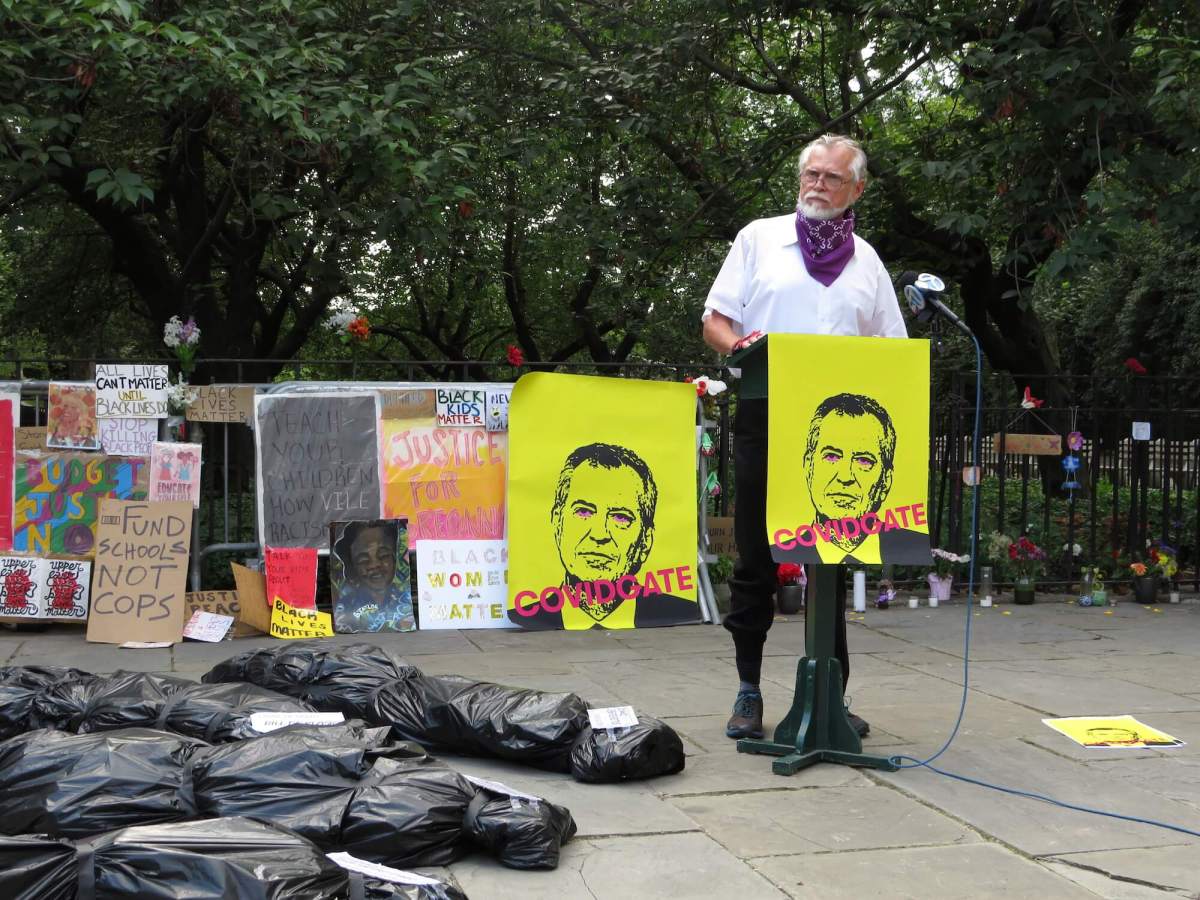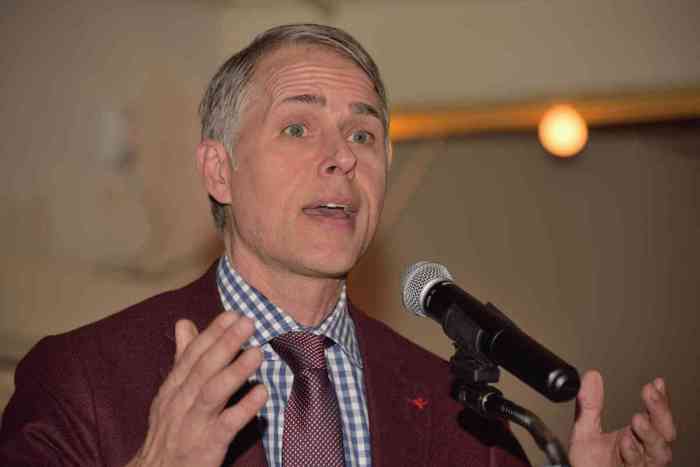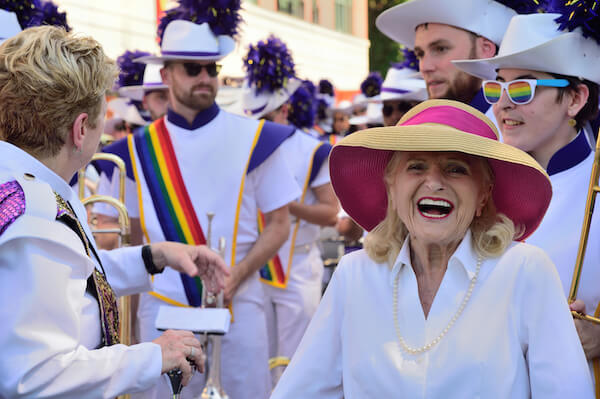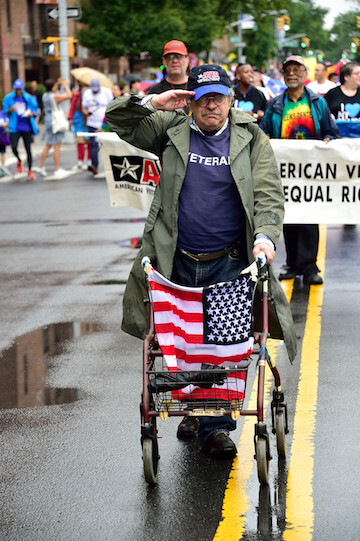A coalition of health groups, including AIDS advocacy and service organizations and others with decades of experience dealing with infectious diseases, harshly criticized the de Blasio administration for its response to COVID-19 and demanded that City Hall engage with the communities and community groups that have been most affected by the virus.
“Since March, I have conducted more memorial services than I have since the initiation of anti-retroviral therapy,” said Charles King, the chief executive of Housing Works, an AIDS services group, and an ordained priest, during a July 29 press conference held near Gracie Mansion, the mayor’s official residence.
King, who has run Housing Works since 1990, long ago committed to presiding at the memorials of his agency’s clients, but those events became increasingly rare starting in the mid-90s as anti-HIV drugs kept people who are HIV-positive healthy and suppressed the virus to the point that they are unable to infect others. He now presides at services for people who were killed by COVID-19.
“I hold the mayor of this city and the governor of this state directly responsible for those deaths,” King said.
Health groups, including AIDS advocates, say New York’s contract tracing effort unprepared for second wave
Housing Works is among those HIV groups that have been successful in getting their positive clients onto anti-HIV drugs and to an undetectable status, as viral suppression is called. King, along with Mark Harrington, the executive director of the advocacy organization the Treatment Action Group (TAG), are credited with developing the Plan to End AIDS, an ambitious effort to reduce new HIV infections in New York to the point that the HIV epidemic ends. Mayor Bill de Blasio and Governor Andrew Cuomo endorsed that plan in 2014.
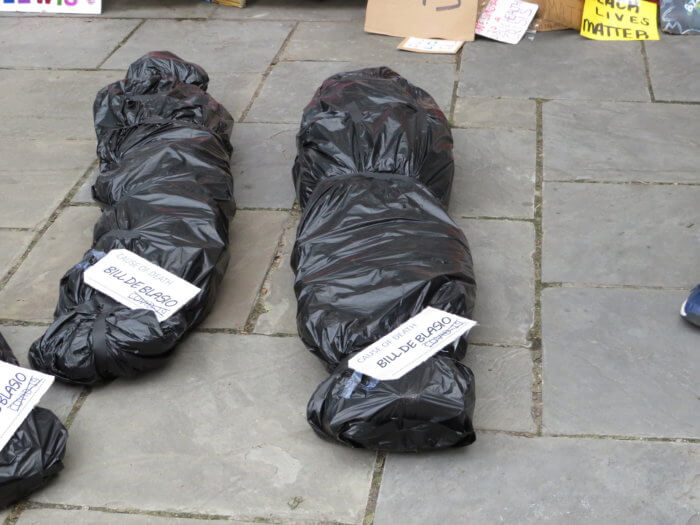
New York City has had the largest COVID-19 outbreak in the country to date. It is reporting more than 220,000 infections, with more than 23,000 confirmed and probable COVID-19 deaths. The city was late in responding to the virus, and then when it did respond its efforts were hindered by the failed federal government response. Infections and deaths in the city were overwhelmingly among Black and Latinx people who are poor.
Testing for the virus continues to experience long delays between when a person is swabbed or has blood drawn and when they learn the results. Those delays, which can be days or weeks, mean that a person who is infected may infect others while they wait to learn if they are infected, which effectively makes the testing pointless. The city has, at best, a limited ability to force private labs that test the blood or swabs to move faster.
The major complaint is that the mayor elected to give the responsibility for testing and tracing COVID-19 cases in the city to NYC Health + Hospitals, the city’s public healthcare system, and took that responsibility from the city’s Department of Health and Mental Hygiene, which has a decades-long record of contact tracing.
Press reports on the city’s testing and tracing efforts have been consistently negative. On July 29, The New York Times ran yet another story in which contact tracers and at least one supervisor complained about poor training and ineffective systems and support. One said the data on testing and tracing being shared with the press and public was “propaganda.”
The mayor was asked about the Times story during his July 29 press conference and said the testing and tracing was “extraordinary.” It had stopped “between 2,000 and 5,000 further infections.” He added, “It’s playing a crucial role in addressing people coming in from outside the city who need to be followed up on and quarantined.”
Some of the speakers at the press conference serve on a NYC Health + Hospitals community advisory board that oversees the testing and tracing effort. They said they had limited access to data and when they were given data, it was not in a form that they could analyze on their own.
“Delays to me mean you have no understanding of the value of Black and Brown lives,” said Anthony Feliciano, director of the Commission on the Public’s Health System, which was founded in 1991.
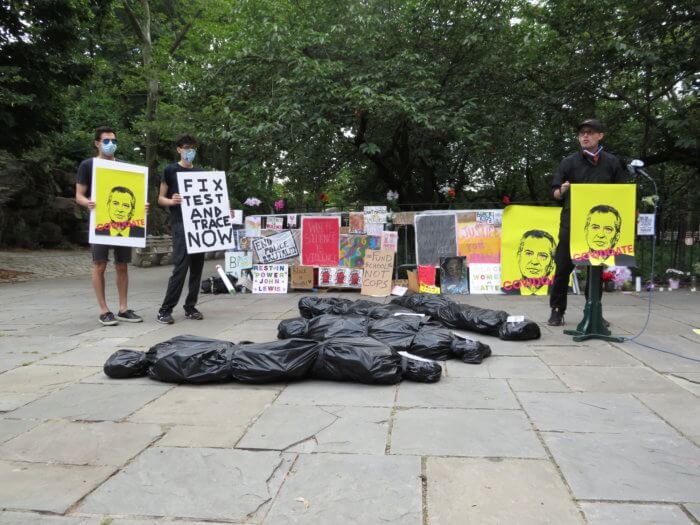
The press conference was held at the entrance to Carl Schurz Park on Manhattan’s Upper East Side at a site where many posters from earlier protests were displayed on a fence. For the press conference, activists used four body bags with large toe tags reading “Cause of death Bill de Blasio,” with “COVID-19” crossed out. Activists repurposed an old ACT UP image of Ronald Reagan with his eyes reddened and “AIDSGATE” written below Reagan’s face and rendered de Blasio with red eyes and “COVIDGATE” printed across the poster.
Among their demands, activists want the city health department back in charge of the fight against COVID-19 and “accurate, transparent data,” according to their press statement.
A second concern is that the city’s current response during the nation’s continuing first wave of COVID-19 infections indicates that New York City is unprepared for a second wave that may come when the weather turns cooler in the fall and winter.
“We remain entirely unprepared for a second wave of infections,” said Jeremiah Johnson, TAG’s HIV Project director. “This is a life and death matter… We deserve a competent response.”
In their statement, the groups said, “Recent presentations on the city’s preparedness to avert a second wave of infections through a test and trace program have been deliberately misleading, and community recommendations on improved transparency have been largely ignored.”
Other speakers were Anthony Fortenberry, the chief nursing officer at the Callen-Lorde Community Health Center, Brian Romero, a policy associate at GMHC, Fiona Lowenstein, a member of the Body Politic Support Group, and. Sutton King, president and executive director of the Urban Indigenous Collective.
To sign up for the Gay City News email newsletter, visit gaycitynews.com/newsletter.

